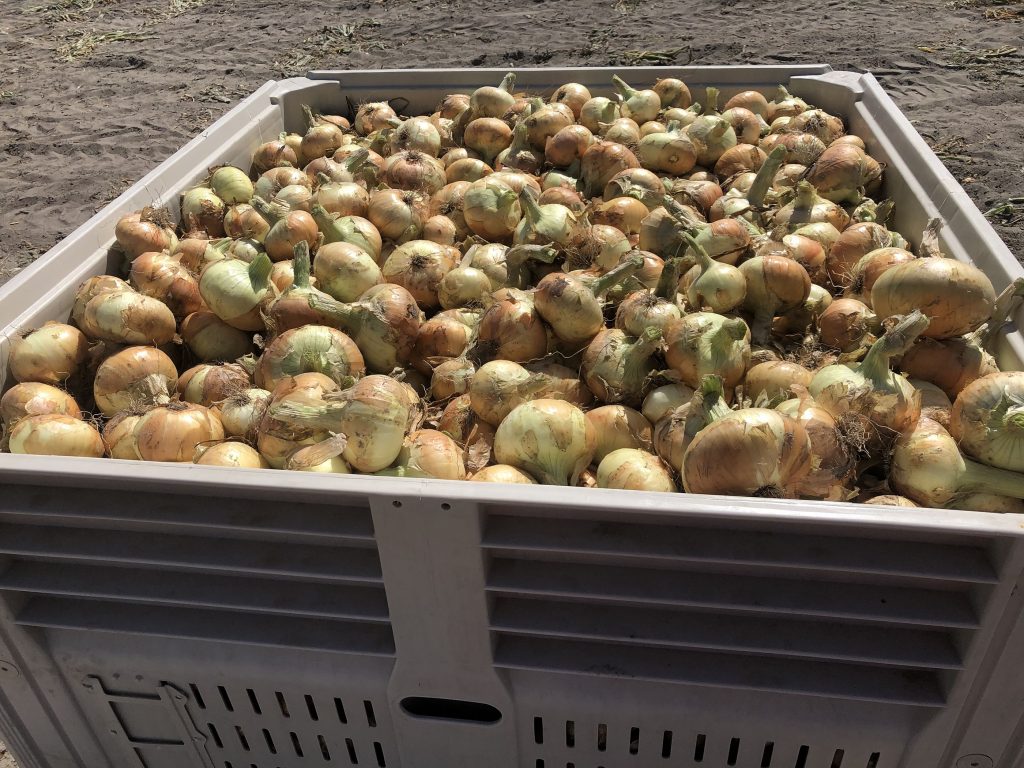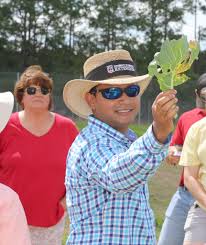
By Clint Thompson
University of Georgia Extension vegetable plant pathologist Bhabesh Dutta encourages Vidalia onion producers to apply copper ahead of this weekend’s frigid temperatures.
“We need to put out at least copper before the freezing weather sets in. Copper may provide some degree of protection from saprophytes and pathogens after cold injury to foliage” Dutta said.
Something is Better Than Nothing

While the application will not provide total protection against temperatures that are expected to plunge to 17 degrees Fahrenheit on Friday in Reidsville, Georgia, with additional sub-freezing temperatures expected for consecutive nights through Tuesday, something is better than nothing.
“It is hard to estimate to what level of protection can be achieved from copper application on leaves but something is better than nothing applied against bacteria” Dutta said. “Another important point to consider is not to spray sanitizing products (OxiDate or others) on leaves/plants that get freeze injury. Spraying these products can exacerbate the situation.”
Plants that were just planted within the last two weeks have not developed a strong enough root system, so they are more susceptible to the colder temperatures. Plants that have been in the ground longer than a couple of weeks have a more developed root system, some growth and built-up energy. Dutta said even those could be vulnerable to the sub-freezing temperatures.
“Young transplants that were planted later are the ones that are going to bear the brunt of freezing temperatures. Even the early planted onions may also be affected, not as much as the younger/later planted onion. After the cold injury, you’ll have dead leaves, which will predispose the plants from the invasion of secondary pathogens,” Dutta said. “The freeze damage on leaves can wound leaves that will open the avenues for further bacterial followed by fungal invasion.”









